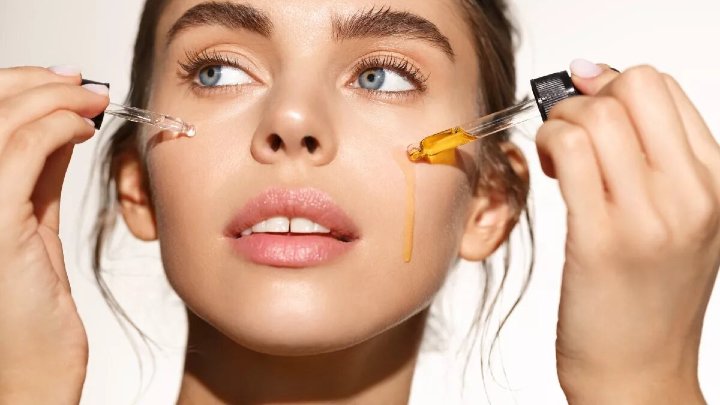Dealing with skin concerns? Then you need help with the extra boost from a serum. What does a serum do for your skin that sets it apart? Improve that very condition you want to treat.
Different from other skincare products, serums are known to provide a punch when it comes to treating skin issues. With increased molecules, the serum is more concentrated with active ingredients. This leads to a more effective solution.
With this versatile product, your skin comes out better than ever. Nonetheless, will you be getting the best for your skin?
To answer this, you need to understand the benefits of different serums for the skin. From hydrating benefits to anti-aging benefits, here are what serum does for your skin.
What does hyaluronic acid serum do for your skin?
Hyaluronic acid is a rich humectant used to plum and provides moisture to the skin.
The naturally occurring component is found in the skin tissues and joints. As a synthesizer, it boosts the hydration of the skin when applied topically.
Hyaluronic acids can be found in most skincare products, which include serum. In serums, hyaluronic acid boosts hydration and moisture level of your skin.
If you have naturally dry skin or experiencing dehydrated skin, hyaluronic acid serum increases the moisture of your skin.
In addition, a hyaluronic acid serum provides long-lasting moisture to your skin. The humectant draws moisture from its surrounding, keeping your skin supple for a long period.
Board-certified dermatologist, Dr. Rachel Nazarian, calls the ingredient “a humectant with the ability to draw and hold water.”
Consequently, skin elasticity is maintained, thereby improving skin texture and moisture retention. Therefore, hyaluronic acid serum keeps your skin moist, firm, and glowing.
What does retinol serum do for your skin?
As a vitamin A derivative, retinol is a golden child in the skincare industry. It functions as an anti-aging and acne treatment. The unique molecules of the ingredient fight free radicals in the skin that cause premature aging, thereby enhancing a youthful skin glow.
Retinol serum provides stimulants that improve collagen and elastin production in the skin.
This leads to improved skin cell regeneration, where new skin cells replace old ones. As a result, new and smoother skin resurfaces.
Additionally, retinol serums provide your skin with acne relief. OTC retinol is known to treat mild to moderate acne on the skin. Moreover, with a retinol serum, your skin revives its color or complexion. Therefore, it is used for skin brightening purposes too.
Consequently, retinol serum gives your skin rejuvenation from aging, treats acne, brightens your skin, and smoothens it out to provide a silkier skin texture.
What does vitamin C serum do for your skin?
Vitamin C is rich in antioxidant properties that stimulate collagen production in the skin, improving skin cell generation.
The skin-renewing component improves skin complexion and reduces hyperpigmentation or discoloration on the skin.
Similarly, it reduces the appearance of acne scars and skin blemishes. This is why the serum is used for skin brightening and lightening purposes.
Furthermore, vitamin C serum control oil in the skin and reduces the inflammation and redness of the skin. Thanks to its collagen-boosting properties, it helps in reducing anti-aging effects on the skin.
As a result, you need a vitamin C serum to improve your skin tone, reduce wrinkles and fine lines, control sebum production, and improve your blocked pores.
What does niacinamide serum do for your skin?
As a form of vitamin B3 (niacin), niacinamide is a skincare component that does a range of things for the skin. The component is used to regulate the skin’s moisture while hydrating it; serves as an antioxidant for skin irritation and redness; helps to reduce hyperpigmentation on the skin.
Consequently, your niacinamide serum will help to improve your skin tone, reducing dark spots and overproduction of melanin.
Furthermore, the serum controls sebum production, regulating it on the skin. This, in turn, helps to reduce acne breakouts on the skin.
Additionally, your skin would feel soothed due to the antioxidant properties of niacinamide serum. The free radicals-fighting serum helps to maintain the skin’s breakdown. This helps to strengthen the skin barrier.
Moreover, niacinamide is hydrating. It keeps your skin supple and minimizes the size of pores on your face.
What does an antioxidant serum do for your skin?
Antioxidant serums target skin concerns relating to free radicals.
These serums work to fight free radicals by attaching themselves to them and breaking them down before it breaks down the electron in your skin cells.
You will find antioxidant serums rich in ingredients or components with high antioxidants. Green tea, tea tree oil, vitamins C, E, and B3, and hyaluronic acid have a high content of antioxidants.
These components are used to enrich the skin, providing a safety net against free radicals to stop skin damage. Furthermore, the antioxidant soothes irritated skin. If you have sensitive skin that reacts easily, you can use an antioxidant serum to keep your skin cool and fresh.
What does collagen serum do for your skin?
Collagen is a naturally occurring protein in the skin that accelerates skin cell regeneration. However, as you age, the collagen in your skin depletes. With collagen serum, your skin reproduces new skin cells faster than before.
Consequently, collagen serum helps to renew skin cells, which reduces wrinkles, fine lines, and spots. Furthermore, your skin becomes smoother and softer. Plus, your skin looks firmer and more youthful to the touch.
You can use this serum to boost smoother skin. This is why collagen is one of the best anti-aging ingredients in serums.
What does peptide serum do for your skin?
Peptide is a type of amino acid that provides the skin with needed protection and skin strengthening. The component helps to strengthen the lipid barrier of your skin. This prevents free radicals from entering the skin.
Similarly, it boosts collagen production in the skin, thereby increasing new skin cell generation and turnover. The component smoothens the lines of your skin. This makes it a great ingredient for anti-aging.
You can use a peptide serum to improve the smoothness and softness of your skin, improve skin turnover, and reduce wrinkles, fine lines, and crepes on the skin.
Is serum important for the skin?
Yes, it is.
Serums are essential in skin care because they offer several targeted treatments for skin concerns.
You need a serum for the following:
- Improve and even skin tone
- Smoothen skin texture
- Control sebum
- To reduce acne breakouts
- Help reduce aging signs
- Reduce hyperpigmentation and spots, etc.
A serum is important in any skincare routine due to its highly concentrated formula that penetrates the skin due to a serum’s liquid form. The concentrated ingredients provide a quick solution to your skin concern.
Therefore, you need a serum in your skincare if you want to see changes in a short time of using skincare products.
Does serum have side effects?
Yes, it does.
Serums can cause side effects that range from mild to moderate. However, it does not have lasting effects. Furthermore, the serum side effects depend on the active ingredients and formula.
For instance, hyaluronic acid and niacinamide serums rarely cause threatening side effects. However, retinol and vitamin C serums can cause a burning sensation, irritation, redness, or even breakouts.
In addition, serum side effects are due to your skin purging remnant ingredients when you change formulas; when using a serum for the first time and the skin adjusts to it; when the serum’s formula is not suitable for your skin type.
Nonetheless, the side effects stop on their own once your skin is adjusted to the serum. This takes about 2-4 weeks. If it does not, discontinue immediately.
FAQs

Do you need to apply the serum every day?
Yes, you do.
You need serum in your daily skincare routine to get the best result in a short time frame.
Using a good serum every day provides the needed treatment for skin issues like hyperpigmentation, breakouts, and aging signs. And to treat such imperfections, you need to use your serum religiously.
Can serum replace moisturizer?
No, it can’t.
Serum is not a moisturizer. However, it does hydrate the skin and softens its textures. Nonetheless, your serum should not replace your moisturizer.
However, oily skin can skip moisturizers if they are using an enriching serum with a packed moisturizer, which could lead to increased sebum production in the skin.
Does serum stop aging?
No, it doesn’t.
Serums contain active ingredients that reduce signs of aging but do not stop the natural aging process. Aging is natural; therefore, it will continue, but only at a slower rate.
Does serum change skin complexion?
It improves skin complexion.
Good serums improve your skin tone and complexion. It does not alter it to something else. Only bleaching ingredients like hydroquinone can change the complexity of your skin.
Brightening and lightening serums provide your complexion with a much richer color than before hyperpigmentation, dark spots, or free radicals changed it.
Conclusion
Serums are concentrated active ingredient products that provide a quick solution to your specific skin issues. The products help the skin stay hydrated, reduce hyperpigmentation by brightening the skin, and reduce aging signs.
You can get much more from using a serum. Consequently, it is good for your skin. If you are wondering what serum does for your skin, always keep this in mind – better skin complexion. However, this is only possible if you are using the right one.
Similarly, the formula has to be of the best quality to provide the needed rejuvenation. Nonetheless, serums are the best-kept secrets of skincare buffs. It’ll do you well to learn.
Thanks for reading.
You can find more helpful beauty tips here on MBGON.
